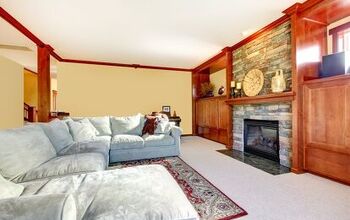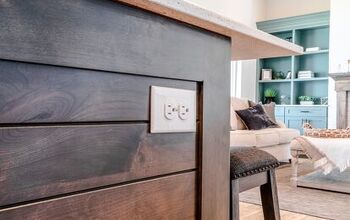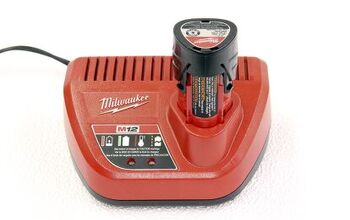What To Consider Before Renting Out A Room In Your House

Renting out a room is a big commitment, but it’s also a great opportunity. It gives you the chance to save on your expenses and earn some extra income. You’re not alone if you’re unsure about what to consider before renting out a room in your house.
Rental price is the most important thing to consider before renting a room out in your house. Refer to nearby listings to set a price, and consider whether or not the extra income is worth the effort. It’s also important to carefully vet potential tenants and set guidelines for them on the lease.
Take great pictures of the room and the common areas in your house. Stage the room to make it look bigger and more comfortable. Follow along as we explore 10 things to consider before renting a room out in your house.
10 Tips For Renting Out A Room
1. Local Laws
Landlord and tenant laws vary between states. Naturally, violating such laws can lead to serious fines and penalties that aren’t worth the trouble. You must do your homework and research your obligations as a future landlord.
For example, states impose strict regulations regarding what makes a home habitable or inhabitable. You’ll also be required in most cases to make repairs and maintain the house, depending on the lease and where you live. Consult a lawyer before you list a room in your house to avoid problems.
You must also check to see if you’re allowed to rent a room out if you’re part of a Homeowners Association (HOA). HOAs often don’t allow this, so it’s worth checking before renting a room out, as you may face fines.
2. Come Up With A Timeline
Renting a room out to a stranger or even a friend is a big commitment. Ideally, you should carefully consider how long you’ll be comfortable with that arrangement. Think about how long you want to rent a room out long before you list it online.
For example, some people only rent rooms out for 6 months to 2 years. There is no right or wrong answer, as it’s about your comfort. Some people only want short-term rentals, so you can’t go wrong with a short lease.
You can even set a month-to-month lease, which is quite common. That way, you can attract candidates who don’t want to feel locked down. However, nobody will blame you if you set a 12-24-month lease,as that is common as well.
3. See How It Affects Your Insurance
Insurance policies are often strict and even confusing for homeowners. For example, homeowners insurance providers don’t typically let people add landlord insurance to their current plans. That’s because being a landlord comes with unique risks and responsibilities.
Unfortunately, you most likely must purchase a separate insurance plan as a landlord. However, many people find this worth the cost, as it can help you save a fortune if disaster strikes. Landlord insurance protects landlords from liability for certain incidents, injuries, and damages.
The extra cost can be annoying, but it’s better than covering damages out of pocket. Contact several landlord insurance providers before renting a room out in your house.
4. Create Guidelines
Every lease has guidelines, and they exist for a reason. After all, it’s your house, so you can’t simply let a stranger move in and treat it however they want. However, you must consider that harsh, strict guidelines can make people hesitate to sign a lease.
Look up traditional lease rules that most landlords impose. That includes rules regarding smoking, pets, payment guidelines, liabilities, and maintenance responsibilities. You must specify what’s allowed and what isn’t allowed long before they sign the lease.
Otherwise, everything will come as a surprise and the tenant may break their lease. For example, you must tell the tenant whether or not pets are allowed before signing the lease. You can also include some specific guidelines regarding guests and noise curfews.
5. Pick A Room
How many spare bedrooms does your home have? Picking the right room to rent out is just as important as the rental price itself. You can’t simply pick a shabby, unkempt room and expect anyone to want to live there.
Ideally, you should pick a room that has plenty of space for bedroom furniture and decorations. A lack of closet space will only hurt your case as most people need as much closet space as possible. However, you may simply not have any closet space in the room.
In that case, you may want to provide garment racks to appeal to potential tenants. You must thoroughly clean the room you pick to ensure it’s presentable. Take high-quality pictures of the room before listing it to help people imagine themselves living there.
6. Set A Price
Setting a price for the room you rent out can be difficult. After all, it’s your house and you’re willingly giving up a piece of it. However, you can’t set an abnormally high price and expect anyone to sign a lease and move into the room.
You must research rental prices for rooms of the same size in your area. Use search filters on apartment rental websites and input the square footage of your room to compare it to others. However, you must also pay attention to other factors that establish prices.
For example, similarly sized rooms can fluctuate in price significantly based on location and amenities. Set the search to only list results within your area to get the best idea of pricing. Keep in mind that people can see through overpriced listings, but that you also shouldn’t sell yourself short.
7. Designate Common Areas
You’re only renting out one room, but that’s not the only room in your house. Renting a room in a house means tenants must often navigate common areas. That includes the living room, kitchen, and family room.
You must designate common areas and leave nothing to confusion. That way, the tenants will understand which rooms they can comfortably walk through without feeling like an intruder. Naturally, you must grant them kitchen access.
You must keep in mind that you have to make some changes in these common rooms. For example, you must give your tenant some space in the kitchen cabinets and refrigerator. That way, they’ll feel at home, and you won’t have to worry about the dwelling being deemed uninhabitable.
8. List The Room Carefully
People take online apartment listings seriously, as they ultimately set the tone for their future homes. Everything from the way you word the description to how the pictures look can determine the impression you make. Seemingly small factors, such as lighting and furniture, can make a world of difference.
For example, rooms typically look small and uninviting without furniture. That’s why it’s worth staging the room with furniture and decorations, at least for the pictures. The homier the room looks, the more easily people can picture themselves living there.
Stains, dust, pet hair, and clutter can ruin any picture, no matter how well-framed it is. It’s also important to take pictures of common areas, like the bathroom and kitchen. This will paint a perfect picture of everything they can expect from moving into your house.
9. Think About If It’s Worth It
Sharing your house with someone else can affect your quality of life. While it can help you pay off the mortgage and cut your expenses in half, it can also limit your privacy and impact your comfort at home.
That said, many people rejoice at the notion of having someone move in to help them cut costs and even earn a profit. You must consider whether renting out your house is worth it. Make a list of the pros and cons to help rationalize it in your head.
Keep the lease as short as possible if you’re not completely sure and comfortable with the prospect of renting out a room. You can also include a clause that lets you terminate the lease early if possible. However, you can only do this if local landlord laws allow it.
10. Screen Tenants
Letting someone into your house is a risk, so you must screen potential tenants. Conduct a background check and ask as many questions as you need to feel comfortable with them. After all, you cannot simply take someone at their word, so it’s worth checking to see if they have a criminal record.
Summing It Up
Research local laws and obtain a license if it’s required in your area before renting out a room. Pick a room and take great pictures of it before you create an online rental listing. Set a price based on local prices of nearby apartments of the same size.
Related Guides:

Nick Durante is a professional writer with a primary focus on home improvement. When he is not writing about home improvement or taking on projects around the house, he likes to read and create art. He is always looking towards the newest trends in home improvement.
More by Nick Durante











![How Much Weight Can a 4×4 Support Horizontally? [It Depends!]](https://cdn-fastly.upgradedhome.com/media/2023/07/31/9070333/how-much-weight-can-a-44-support-horizontally-it-depends.jpg?size=350x220)


![The 5 Best Angle Grinders – [2022 Reviews & Buyer's Guide]](https://cdn-fastly.upgradedhome.com/media/2023/07/31/9071326/the-5-best-angle-grinders-2022-reviews-buyer-s-guide.jpg?size=350x220)












